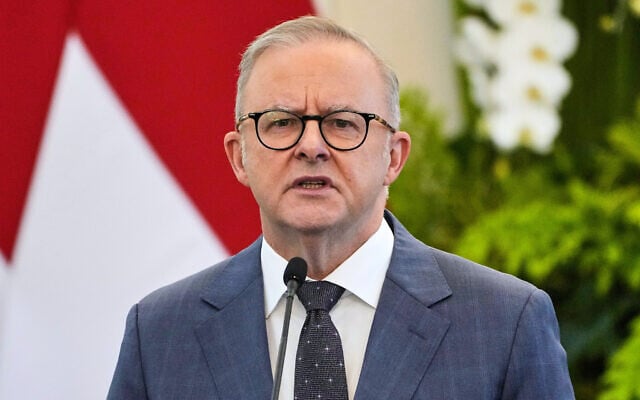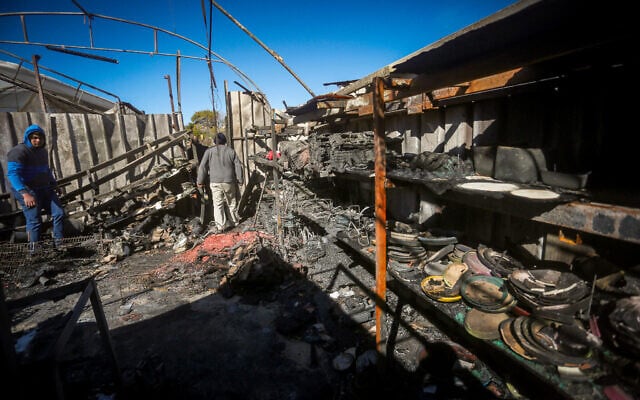



US Secretary of State Marco Rubio on Tuesday denounced the decision by five Western governments to sanction far-right ministers Itamar Ben Gvir and Bezalel Smotrich.
The statement largely reiterated one made earlier by US State Department spokesperson Tammy Bruce, but also included a call from Rubio for United Kingdom, Canada, Norway, New Zealand and Australia to reverse their decision.
“These sanctions do not advance US-led efforts to achieve a ceasefire, bring all hostages home and end the war,” Rubio said.
The secretary’s statement focused on Gaza, but the British-led move to freeze assets and bar the entry of the two ministers came in response to Israel’s policies in the West Bank, where the countries said Smotrich and Ben Gvir have incited extremist violence against Palestinians.
Settler attacks have been taking place there unchecked on a near-daily basis and the head of the police’s West Bank division is currently under investigation for turning a blind eye in order to curry favor with Ben Gvir, the police minister.
“We reject any notion of equivalence: Hamas is a terrorist organization that committed unspeakable atrocities, continues to hold innocent civilians hostage, and prevents the people of Gaza from living in peace. We remind our partners not to forget who the real enemy is. The United States urges the reversal of the sanctions and stands shoulder-to-shoulder with Israel,” Rubio said.
Foreign Minister Gideon Sa’ar thanked Rubio overnight for having a “clear moral voice, a voice of a true friend,” in a post on X.
“Your words should be the compass to the international community, to all those preaching Israel, ignoring realities,” Sa’ar wrote.
Israel’s Ambassador to Australia Amir Maimon wrote on X on Wednesday that the sanctions are “deeply concerning and entirely unacceptable.”
Ben Gvir and Smotrich slammed the sanctions against them, as did Sa’ar and MK Benny Gantz, head of the opposition National Unity party. In retaliation, Smotrich, the finance minister, directed his office to waive the indemnity that Israeli banks have been given to correspond with Palestinian banks — a critical policy that sustains the Palestinian economy.
Australia’s Prime Minister Anthony Albanese snapped back at the response by Israel and the US to the sanctions, calling them “predictable.”
“The Israeli government does need to uphold its obligations under international law and some of the expansionist rhetoric that we’ve seen as well is clearly in contradiction of that from these hardline right wing members of the Netanyahu government,” Albanese said on Wednesday in an interview with ABC Radio Sydney.
Comments by the two men “have aided what is a serious impediment to a two-state solution,” he added.
“We, along with those other countries and the broader international community, believe we can only see peace in the Middle East when we deal with two states and when both Israelis and Palestinians can live in peace and security,” Australia’s Foreign Minister Penny Wong said in a separate television interview with Seven.
The announcement of sanctions against Ben Gvir and Smotrich cited a UN report released last month that counted 1,900 settler attacks on Palestinian villages in the West Bank since January 2024.
Near-daily attacks by extremist Israeli settlers over the past two years go unpunished in the vast majority of cases.
Attacks spiked following the Hamas onslaught of October 7, 2023, which killed 1,200 people in southern Israel and sparked the war in Gaza. Hebrew media reported a month into the war that Ben Gvir had dismissed Shin Bet warnings about deadly settler attacks in the West Bank.
Earlier that year, Smotrich caused controversy by saying Israel should “wipe out Huwara,” a West Bank Palestinian village where hundreds of settlers carried out a deadly rampage after two Israeli brothers were shot dead by a Palestinian terrorist there. Smotrich later apologized for the comment.


